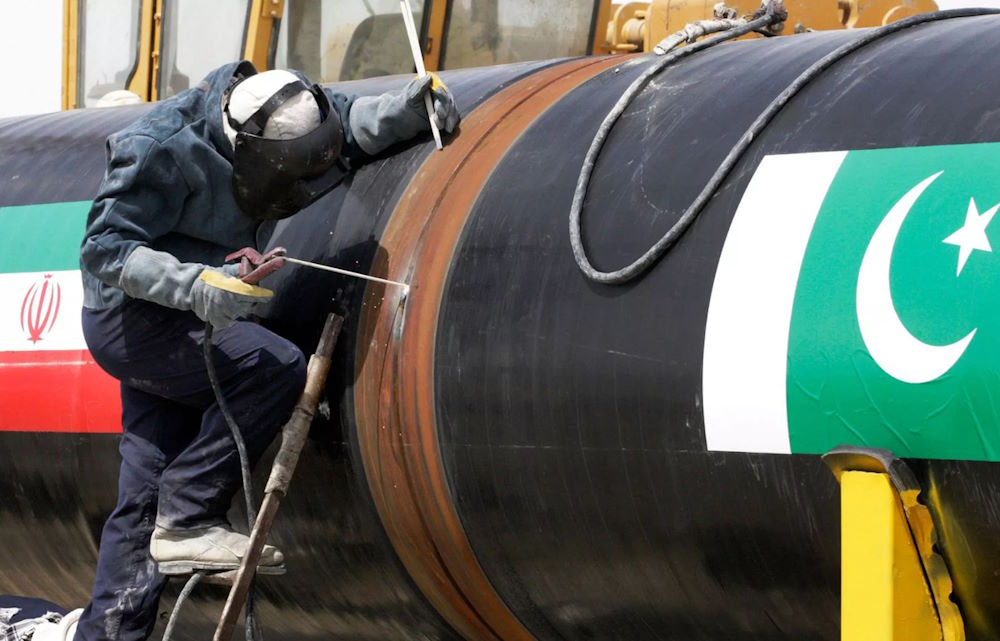According to the Tehran-based news outlet, Ensafnews, the pipeline agreement, inked in 2009, was slated to supply 750 million to a billion cubic feet per day of natural gas from Iran’s South Pars gas field to Pakistan for 25 years. Iran spent $2bn on construction of the pipeline, but India withdrew from the deal altogether and Pakistan did not hold its end of the bargain, citing international pressure, mainly form the US.
Iran has reportedly issued a final notice to Pakistan, demanding it complete its part of the cross-border gas pipeline by the end of September 2024 or face international arbitration, which could result in up to $18 billion dollars in fines.
Islamabad, whose energy needs are growing, tries to navigate the diplomatic minefield between Tehran and Washington and seek a US sanctions waiver for the pipeline.
Massoud Foruzandeh, an oil researcher and historian, told Iran’s Ensafnews the best option for Iran is to reach an agreement with Pakistan to deliver gas to the eastern neighbor.
He warned in case Iran fails to strike an agreement with Pakistan, the Peace Pipeline would become the second Crescent Deal, a failed gas supply contract signed with Sharjah’s Crescent Petroleum in 2001.
Foruzandeh said, besides the US, Russia and Saudi Arabia have their own objections to the implementation of the agreement.
He explained that Russia is not interested in Iran becoming a regional energy pole, and Saudi Arabia does not want its rival to gain power in the region, adding Riyadh has even ignored ‘rational behavior’ as the basis of its capitalist economy and is constructing an expensive pipeline from the seabed to Gwadar in Pakistan and southern India.
